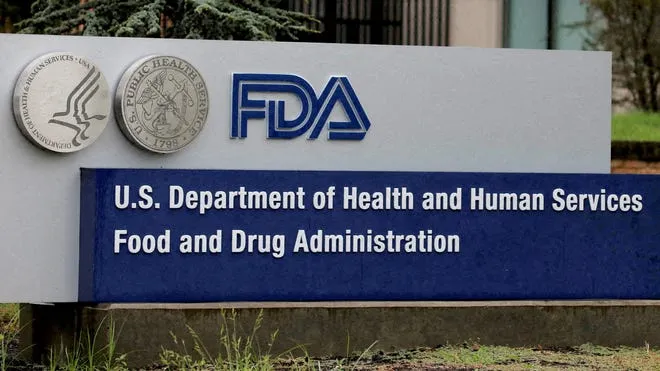FDA Moves to Take Fluoride Supplements for Children Off the Market
In a significant regulatory shift, the U.S. Food and Drug Administration (FDA) has announced its proposal to remove prescription fluoride supplements intended for children from the market. This decision has raised eyebrows among parents, dental professionals, and public health advocates alike, who are now left grappling with the implications for children’s health and preventive dental care.
Background on Fluoride Supplements
Fluoride has long been revered in dental health practices for its role in preventing tooth decay, particularly among children. Historically, fluoride supplements, especially in the form of tablets or drops, were prescribed to children living in communities that lacked fluoridated water supplies. The premise was straightforward: provide additional fluoride to help strengthen enamel and reduce cavities.
Reasons Behind the FDA’s Decision
The recent FDA action comes in response to emerging research that suggests a potential link between fluoride exposure and developmental issues, particularly concerning the brain. A growing body of studies has implicated fluoride in neurodevelopmental disorders. The FDA stated that while fluoride is effective in reducing cavities, it must also evaluate its risks, particularly in vulnerable pediatric populations.
In a formal communication, the FDA highlighted that the decision was predicated on a comprehensive review of scientific literature, which included studies that suggested a correlation between excessive fluoride exposure and diminished cognitive abilities in children. Though the mechanism is still being studied, the FDA’s concern reflects a broader shift in understanding the risks of additives in children’s diets and medicines.
Public Health Perspectives
Supporters of the ban argue that the FDA’s move is a precautionary step to protect children’s health. Dr. Amy McGuire, a public health advocate, stated, “While I have always supported fluoride in drinking water, unregulated and excessive use poses risks that we must take seriously. It’s our duty to ensure the safety of our children. We can’t ignore the evidence that suggests harm could come from fluoride supplements.”
On the other side of the debate, some dental professionals view the FDA’s decision with skepticism. Dr. John Pennington, a pediatric dentist, expressed concern, saying, “While I appreciate the FDA’s caution, we also need to consider the benefits of fluoride. Children in areas without fluoridated water may be at increased risk of dental decay, and we need safe methods to ensure they are protected.”
Potential Impact on Children’s Dental Health
The implications of the FDA’s ban could be broad, particularly in communities where access to fluoridated water is limited. Dental decay remains one of the most common chronic childhood conditions. Public health officials and dental professionals are now faced with the challenge of finding alternative methods of preventing tooth decay without relying on supplements.
Some experts suggest that if fluoride supplements are removed from the market, public health initiatives could focus more intensively on educational campaigns that encourage dietary changes, better oral hygiene practices, and the use of fluoride toothpaste. However, these strategies may not replace fluoride’s protective effects for all children.
Alternatives to Fluoride Supplements
In light of the FDA’s move, parents and caregivers must explore alternative methods to protect their children’s dental health. Recommendations that dental professionals are now making include:
- Fluoridated Toothpaste: Regular use of fluoridated toothpaste can be an effective way to ensure that children are receiving the protective benefits of fluoride. Parents should supervise tooth brushing to ensure children use the correct amount before swallowing.
- Regular Dental Visits: Routine check-ups can help catch dental issues early and provide professional fluoride treatments as needed.
- Education on Diet: Encouraging a balanced diet low in sugar can significantly reduce the risk of dental decay. Foods rich in calcium and phosphorus can also promote a healthy mouth.
As the FDA moves forward with this ban, parents are encouraged to speak with their child’s dentist to find the most suitable course of action for dental health.
The Future of Fluoride in Dental Care
The FDA’s action comes amid a growing global re-evaluation of fluoride use in health and wellness. Other countries have already shifted their approaches based on similar studies linking fluoride exposure to adverse health outcomes. For instance, some European nations have restricted the use of fluoride supplements for children, while others encourage careful monitoring.
The agency’s decision signals a potential shift in how public health authorities approach fluoride, balancing its benefits against possible risks. This action serves as a reminder of the dynamic nature of medical and health recommendations, urging constant vigilance regarding environmental and dietary variables affecting health.
Conclusion
As the conversation surrounding fluoride continues, a multidisciplinary approach must govern how healthcare professionals, policymakers, and communities address children’s dental health. The FDA’s proposal to remove fluoride supplements for children is an important step in evaluating safety in medicine, but it is also crucial not to overlook the overarching goal: the dental well-being of children.
With robust discussions among those at the forefront of public health and children’s health, a path forward can be charted, ensuring that children are safeguarded against both dental decay and potential neurodevelopmental risks. The flourishing dialogues surrounding this issue underscore the necessity of prioritizing informed decision-making and prioritizing child health above all else.







